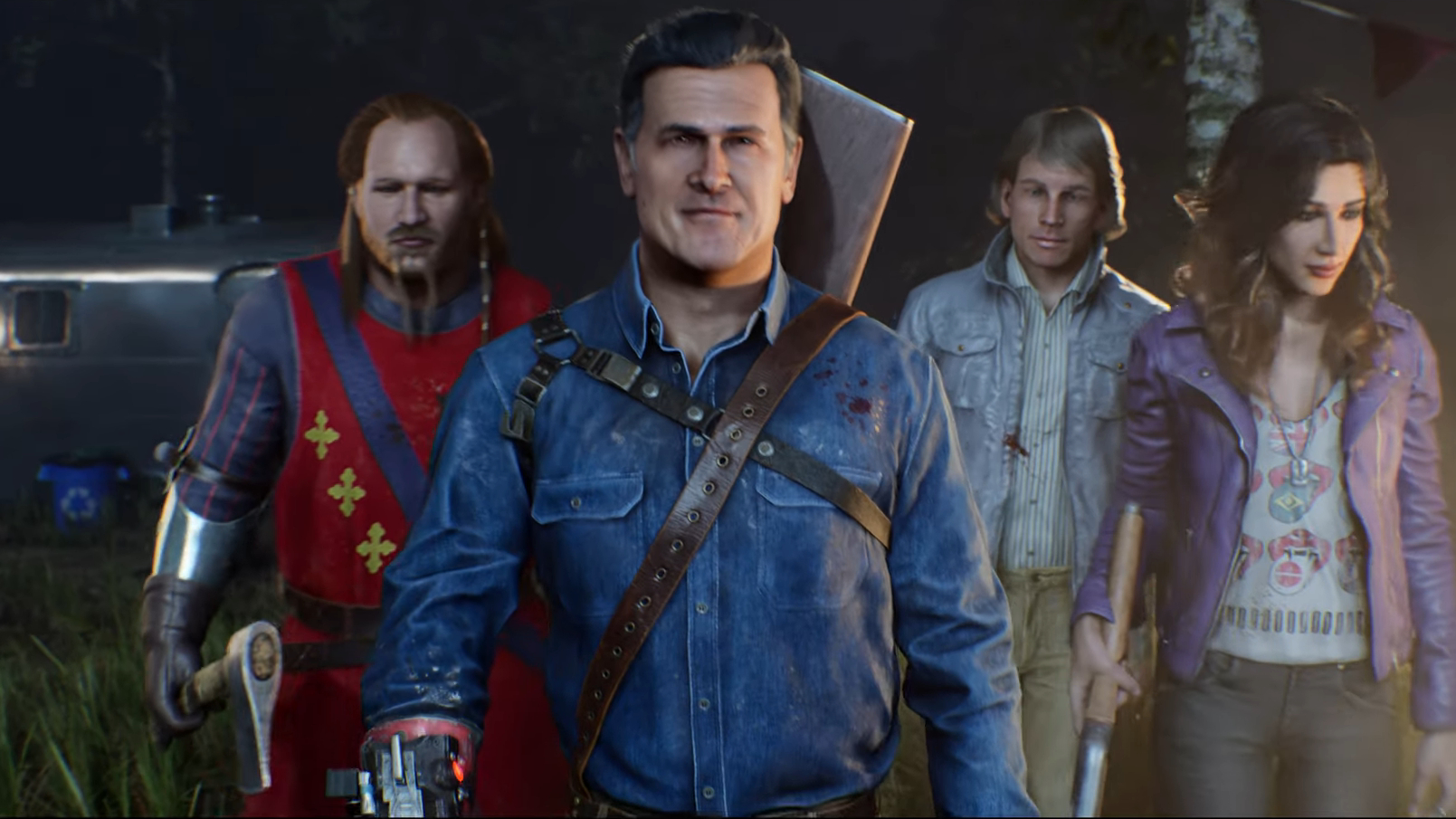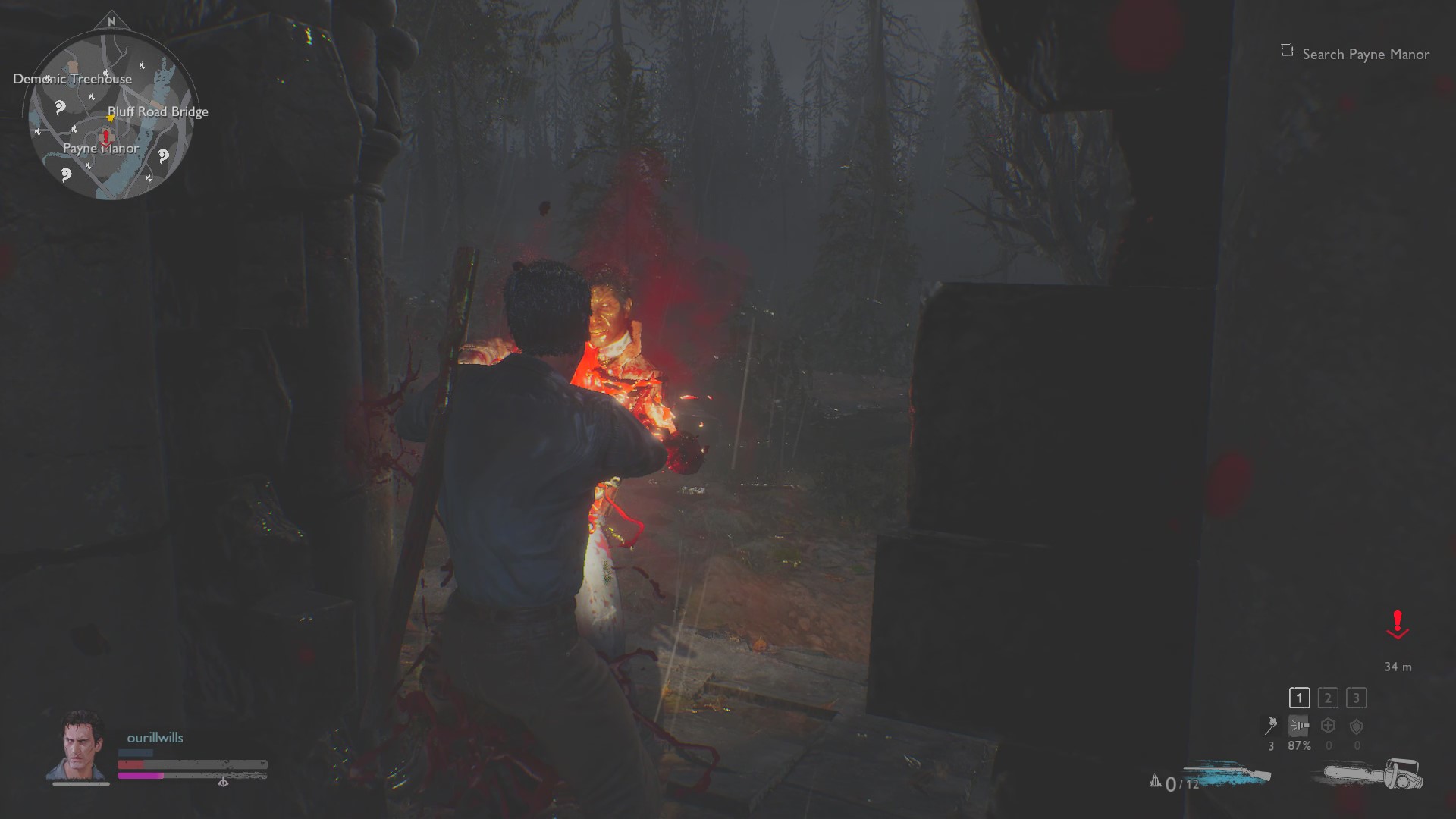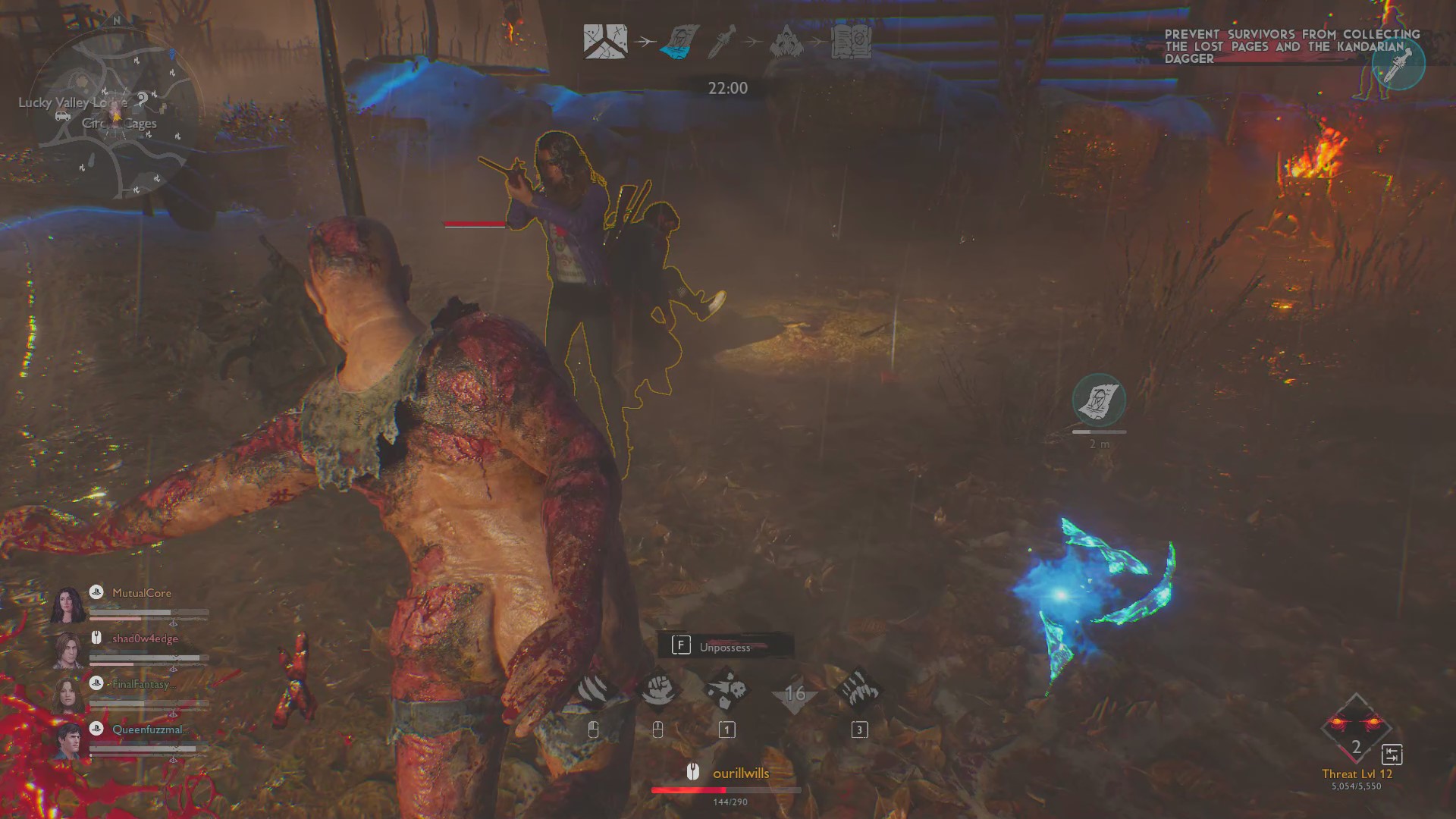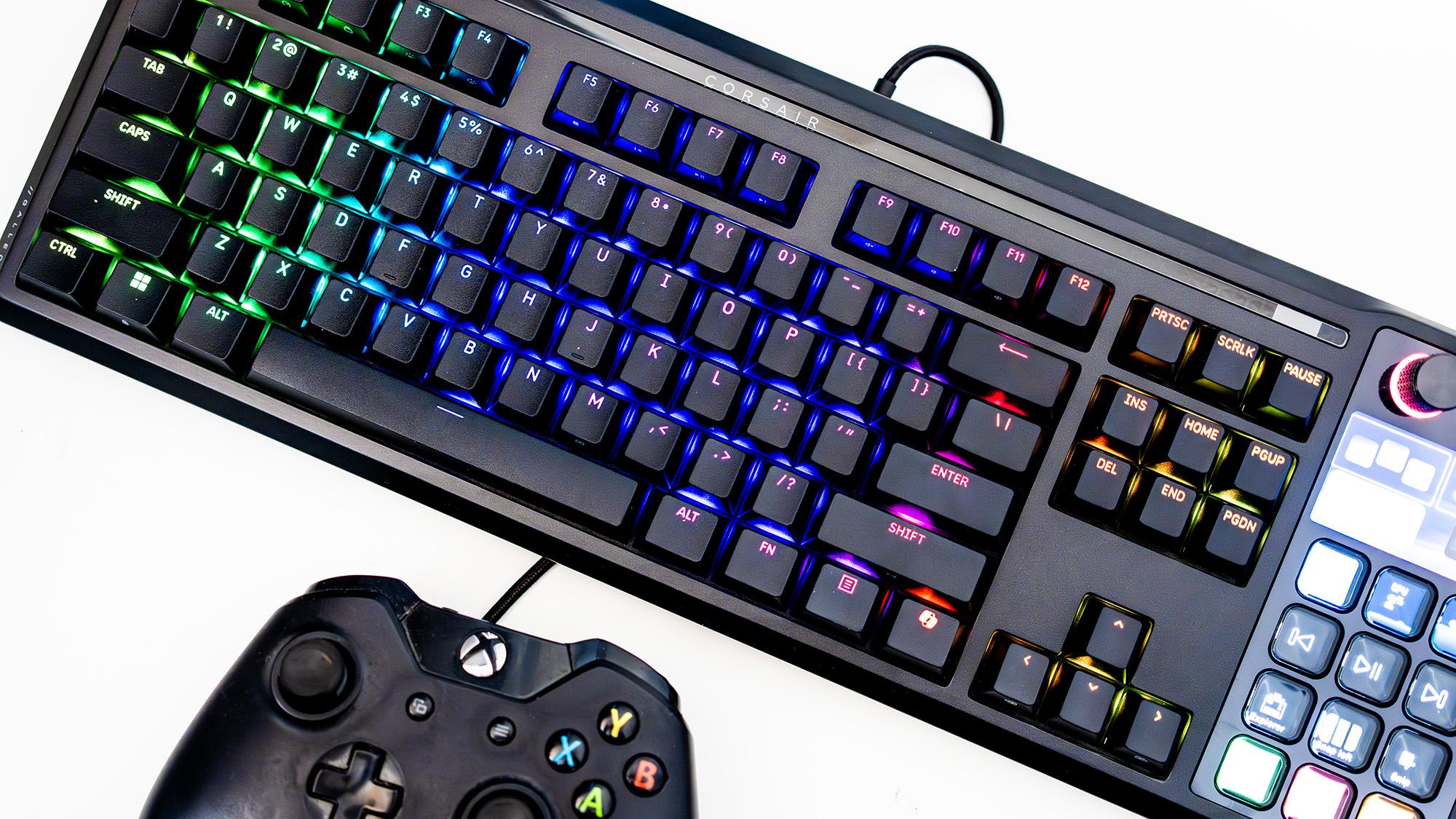PC Gamer's got your back
What is it? A one-versus-all multiplayer horror extravaganza in the Evil Dead universe.
Expect to pay: $40
Developer: Saber Interactive
Publisher: Saber Interactive
Reviewed on: Windows 10, Nvidia GeForce RTX 2070 Super , Intel Core i7-9700 @ 3.00GHz, 16GB RAM
Multiplayer? Four survivors against one killer
Link: Official site
The idea of an "Evil Dead videogame" has a distinctly mid-2000s tang. B-movie franchises have traditionally been fresh meat for enterprising publishers and developers looking to turn a quick buck, which is to say that I did not shamble towards Ash's latest adventure with high expectations. Evil Dead is a stone cold low-culture classic, and given how brutally its contemporaries have been treated by the games business (Ghostbusters, Rambo, The Sopranos), I girded myself for another slapdash gouging. What I did not expect was for Evil Dead to be the best multiplayer horror experience since at least Dead By Daylight. The game is absolutely exhilarating—one of the true left-field sleepers of 2022—and I'm eagerly letting it swallow my soul.
Saber Interactive, the studio behind Evil Dead, clearly cribbed from Dead By Daylight for its chief inspiration. Four players are cast as survivors—all spun off from the boomstick-brandishing zombie slayers from the films—and a fifth takes control of an unseen demon who zooms around the map, opening portals to hell, in hopes of extinguishing all living things. The good guys need to traverse a haunted forest and find a series of artifacts to rout the forces of evil within a 30 minute time limit. The dungeon master tries to incapacitate the party before that can be accomplished.
All of this culminates in one final endgame sequence where, if the demon player has yet to vanquish the protagonists, they'll have one hectic chance to destroy the excavated Necronomicon before they're banished back to the underworld. If you are a DBD veteran then you'll already be aware of the core rhythms here. Survivors will spend a lot of time looting, because brandishing extra ammunition, weapons, and health potions insulates them from the onslaught. Meanwhile, the maleficent player is going to be stockpiling experience points and outfitting a talent build in order to melt through those defenses.
The difference is that Dead By Daylight takes the form of a simple, slasher manhunt—more Jason than Freddy. You chase down the humans with a variety of bespoke murderers and throw their battered carcasses onto meathooks before hunting down more fresh blood. The only challenge is how efficiently you can corner your victims. Evil Dead, on the other hand, gives you the control of an entire battalion of ghoulies. The three factions that ship with the game contain a trio of distinct units (basics, elites, and a boss monster), which all have their own individual abilities. At any time, the demon players can jump behind the wheels of one of those summoned NPCs laying siege to Ash and company. The modularity of everyone's strategic approach is almost overwhelming, and since the demon player can literally possess one of the survivors if certain thresholds are met, they need to have a lucid understanding of the other side's mechanics at all times. Evil Dead packs an insanely high skill cap for a licensed game, to the point that it could seriously work as an esport.
This is a videogame that lets you buff your undead horde with a flute-playing skeleton.
When it all comes together for the demon player, you'll be stalking heroes all over the atlas, boobie-trapping rooms, partitioning rifts in reality, slowly grinding away at their resolve. Party members are constantly at risk of becoming possessed, meaning that there's always an exposed flank outside the field of view. You know how a League of Legends team-fight snowballs into catastrophe once one side builds up momentum? Evil Dead kinda feels like that. Experienced demon players are likely going to understand the roles of all the allied characters, so they can focus down the healers and supports hanging back in the chaos. Well-hewn survivors know to drop their firearms when they're vulnerable to domination, starving the demon of precious ammunition. It's the same cat-and-mouse dynamic I love in other horror games, but multiplied to a galaxy-brain apogee.
Evil Dead might be a bit overwhelming to anyone coming to it expecting some goofy, gory fun. I'm a Killer main in Dead By Daylight, and I was completely stomped in my first few rounds piloting the deadites. (I eventually turned the tide, but not after hitting up YouTube for some metagaming tips.) As always in games of this kind, playing a protagonist is significantly less stressful than being a villain. Evil Dead urges its players to stick together, which often allows the more talented party members to compensate for those new to this particular underworld. Saber has made sure that the protagonists always have a chance to backdoor their way towards victory; if anyone dies in the party, they can be resurrected at stone altars that dot the arena. But demons are on their own, spinning plates, desperate to keep the Ash clan from snowballing towards victory. There are so many fast-paced decisions to make, so many strategic wrinkles to consider, that a round of Evil Dead often leaves me feeling as exhausted as I do after a white-knuckle StarCraft duel. Trust me, I mean that as a compliment.
But there are also plenty of times in Evil Dead where its wonderful cinematic trappings overwhelm whatever min-maxing I'm doing in the stats screen. Henry The Red is alone in the woods, on the verge of a full-blown freakout. I set a dozen devious traps in his path, bringing him to his knees as he bumbled between them like a child in a haunted house. Henrietta, the boss character of the Warlord faction and one of the great Evil Dead villains of all time, has this move where she just squeezes the life out of a player's skull. It can only be stopped if she's attacked, which makes it a particularly satisfying coup de gras when everyone else in the party is downed. The demon can possess the getaway cars rusting away in the forests, which means that a clash can be interrupted by a mack truck burning towards the survivors. Multiplayer horror games need to retain their wonderfully juvenile thrills as they hand over more agency to human beings, because nobody wants to experience the gloriously macabre Evil Dead universe purely through cold, desensitizing mechanics. Saber threads the needle, and wraps in all the goofy tendrils of the series within a package that punches with a ton of competitive intrigue. This is a videogame that lets you buff your undead horde with a flute-playing skeleton. It's both hilarious, and often the difference between victory and defeat.
Keep up to date with the most important stories and the best deals, as picked by the PC Gamer team.
Saber has also recreated the '80s, red-jelly viscera that made the films so iconic. Blood splatters abound, and the developer does a great job detailing the sort of bewitched cabins and funereal campgrounds that are so crucial to the Evil Dead aesthetic. In the heat of battle, when a legion of gibbering viking skeletons are pouring from the breach, sometimes you just want to sit back and watch the action like it's the climax of a Total War campaign. The frame rate stayed locked at a silky 60 throughout all my matches, which is impressive given how many marauding zombies you might be managing all at once. I found a couple stray patches of jank during my exploration—certain hot-keys not triggering and a few floating animations—but overall, the Evil Dead package is air tight, especially compared to Dead By Daylight which is still flagged with some round-ruining bugs six years after its release.
Evil Dead certainly does not feel unfinished, but it does seem to be a first step towards something larger.
All that said, Evil Dead is very much a multiplayer game. There are some solo challenges, tied to cosmetics, available on the home screen, as well as a bots-only mode for tentative zombie slayers, but if you are playing this game in its intended state, then you are sizing up other souls from across the screen. That means Evil Dead is bound by a meta-progression system, unloading tiers of talent points into your favorite demonic tribes or heroic survivors, slowly granting them superior perks. I get the sense that Saber would love to build out Evil Dead into a persistent MOBA-style platform; filtering in new characters with every patch. But the films contain a fairly small universe, and already there are four different versions of Ash Williams to choose from in the character select screen. I am not an expert in the Necronomicon chronology, but I don't know how much more juice there is to squeeze from the source. I don't generally like judging games on their growth potential, but honestly, after futzing around with the 13 heroes and three eldritch forces that shipped in the retail code, I was already hoping that more was on the horizon.
That is the nature of game development in 2022. Countless great multiplayer experiences are pushed out the door with hopes they will latch onto an audience, so that the team can simply keep working on them. Sometimes it works out, and sometimes you find yourself waiting 20 minutes to get into a Spellbreak match, wondering what could have been. Evil Dead certainly does not feel unfinished, but it does seem to be a first step towards something larger. Saber has an excellent multiplayer game that aspires to be a juggernaut in the hobby, and I hope players take notice.

Luke Winkie is a freelance journalist and contributor to many publications, including PC Gamer, The New York Times, Gawker, Slate, and Mel Magazine. In between bouts of writing about Hearthstone, World of Warcraft and Twitch culture here on PC Gamer, Luke also publishes the newsletter On Posting. As a self-described "chronic poster," Luke has "spent hours deep-scrolling through surreptitious Likes tabs to uncover the root of intra-publication beef and broken down quote-tweet animosity like it’s Super Bowl tape." When he graduated from journalism school, he had no idea how bad it was going to get.




